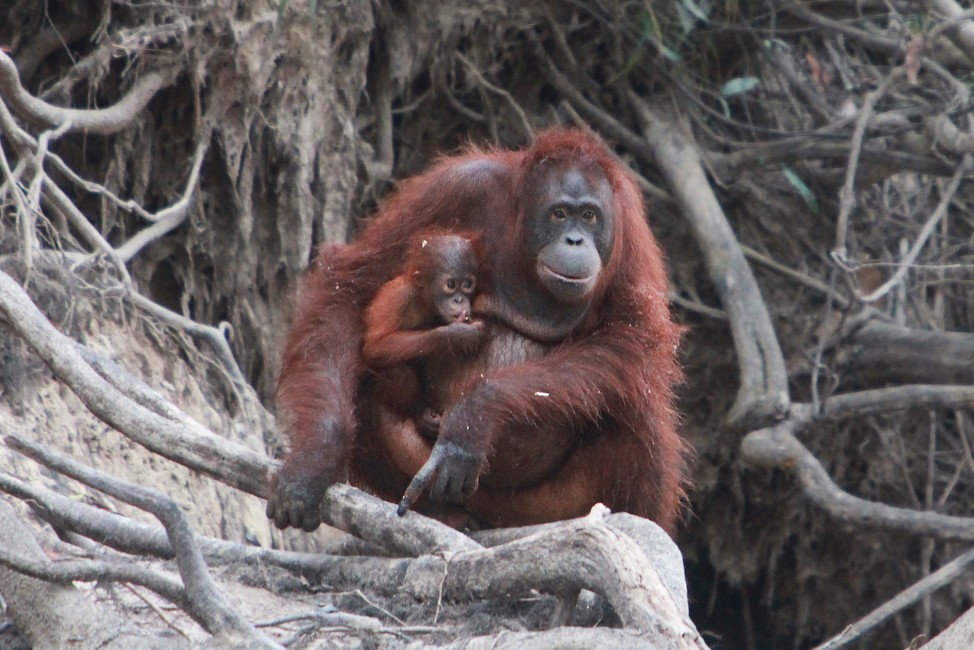
June 11, 2014
Homeless
- as seen by -
 Rhett Butler
@Mongabay.com@mongabay
Rhett Butler
@Mongabay.com@mongabay The name orangutan is derived from Malay words meaning “person of the forest.” The name is appropriate – orangutans are indeed found only in rainforests on the islands of Borneo and Sumatra. This hasn’t always been the case: at one time, orangutans roamed much wider parts of Southeast Asia, but relentless hunting pressure and destruction of their habitat has greatly reduced their range. The great red ape is still losing ground, primarily for a product that most Americans consume every day: palm oil. This vegetable oil is used in foods, soaps, cosmetics, and biofuel. Accordingly, the IUCN has categorized the Sumatran orangutan as “Critically Endangered” and the three sub-species of Bornean orangutan as “Endangered.”
I have frequently seen orangutans during my travels in Malaysia and Indonesia, but nothing quite prepared me for seeing a mother with its infant, like this pair I photographed outside of Palangkaraya in Central Kalimantan. Their interactions are hauntingly human-like, yet we continue to destroy their homes. In this case, these orangutans were moved to an island within a conservation concession after they were rescued from a patch of forest that was being torn down for an oil palm plantation. The hope is that once secure, suitable habitat is found, they will be released back into the wilds of the Indonesian rainforest. Until then, they’ll occupy this small forested island with other orangutans.
Canon 40D
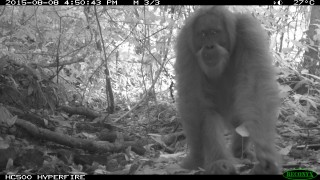
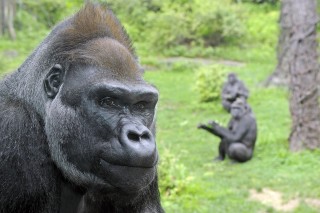
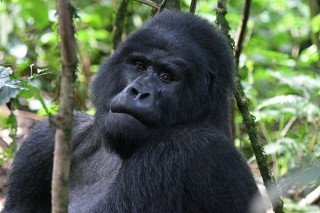
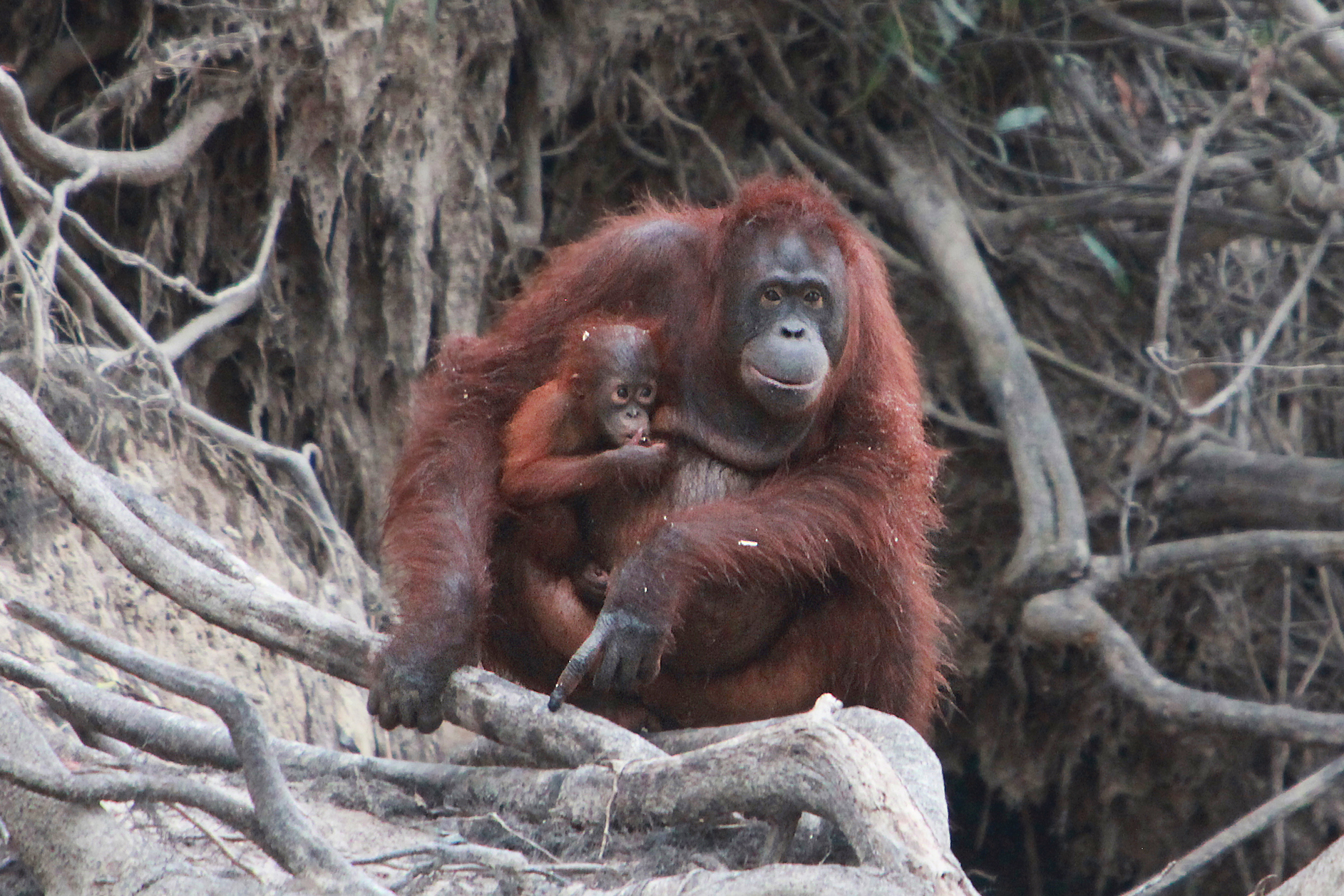
Leave a Comment
Julie Larsen Maher
June 11, 2014 at 12:36 pm
The Wildlife Conservation Society reports that the Bornean orangutan (Pongo pygmaeus pygmaeus) is the last iconic large mammal left in Sarawak, a Malaysian state on the island of Borneo. Orangutan populations are only found in two locations there, and WCS’s Melvin Gumal plans to lead a team to conduct a definitive orangutan survey. Working with the government to develop conservation policies and alongside other agencies such as nature travel groups will increase the likelihood that all stakeholders share a common vision to secure the future of orangutans and their habitats.
Gale Grant
June 12, 2014 at 2:34 am
Thank you, Julie, for the important work that you and WCS do!
Pingback: Fill-you-in-Friday: Orangutan Conservation, part 1 | Megatransect Cassie-style
Julie Larsen Maher
June 17, 2014 at 11:40 pm
Thank you, Gale. WCS field staff works hard to protect our natural resources.